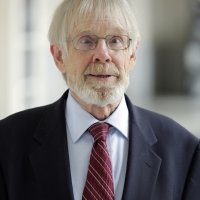Radio Free Europe and the CIA Partnership
Radio Free Europe and Radio Liberty became successful substitutes for free media in the Soviet bloc during the Cold War. This seminar talk will draw on CIA and Radio Free Europe and Radio Liberty archives to trace the history of their first two decades. It will address three questions: What was the evolving reason for CIA covert funding? What was the relationship between CIA and the Radios? Why did the Radios prove to be one of the most important and successful policy instruments of the United States during the Cold War?
A. Ross Johnson is Senior Scholar at the Woodrow Wilson Center and Research Fellow at the Hoover Institution. He was a senior executive of Radio Free Europe from 1988 to 2002. Previously he was a senior staff member of the RAND Corporation specializing in Eurasian and security issues. He is the author of Radio Free Europe and Radio Liberty: the CIA Years and Beyond (2010) and co-editor of Cold War Broadcasting (2010). He is a graduate of Stanford, the Fletcher School, and Columbia.
Speaker

Senior Adviser, Radio Free Europe/Radio Liberty; former Director, Radio Free Europe
Hosted By

History and Public Policy Program
A leader in making key foreign policy records accessible and fostering informed scholarship, analysis, and discussion on international affairs, past and present. Read more
